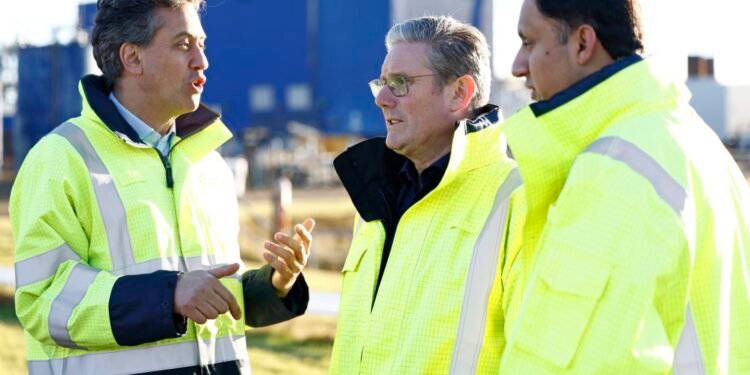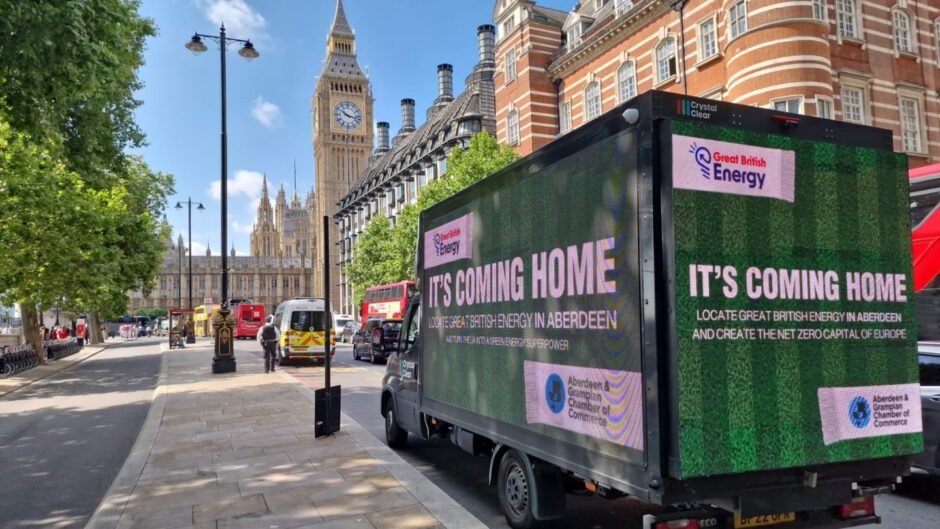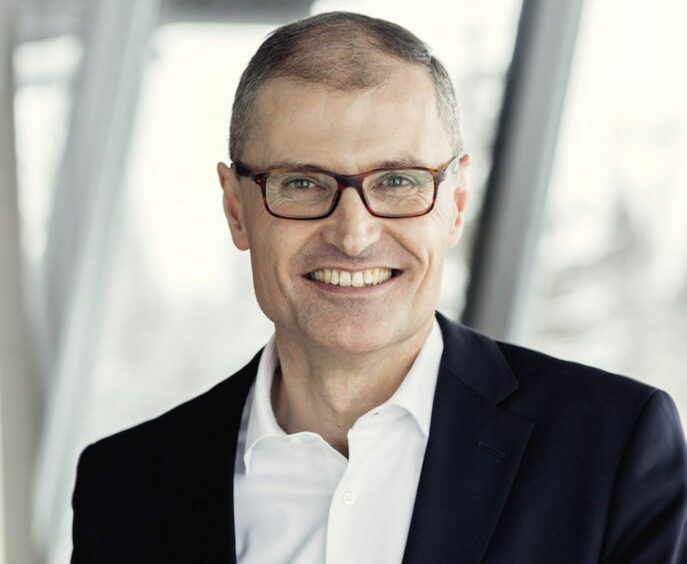DNV CEO Ditlev Engel has extended an invitation to the UK government to work with his firm on the future of GB Energy as he gave his two cents on what the state-owned firm should be doing.
To realise the ambitions of GB Energy, the Labour government must rely on “long-term thinking with short-term follow-up and execution,” the boss of the leading European energy research and analysis group DNV said.
Engel said there are many things to be optimistic about in the UK’s energy transition.
He said: “We should not forget that the largest offshore wind market in the world is still the one in the UK”
Now the UK must look to “take that to the next level” to support domestic firms and the wider European wind market.
The UK is “under-invested in many ways” the DNV boss said, however, he argued that this “should give a lot of economic opportunities as well.”
The DNV CEO told Energy Voice: “If the government invites us for our opinion, I will be happy to share it.
“Whether it’s GB Energy or anything else, the main reason why we’re doing all this is because we need to accelerate decarbonisation.”
GB Energy should promote ‘one approach to the market’ that will ‘benefit everyone’
Rumours of where Labour’s state-owned energy firm will set up shop reached fever-pitch on Tuesday as Aberdeen was unofficially named as the headquarters.
The UK government declined to “comment on speculation,” however, the Department for Energy Security and Net Zero (DESNZ) did not deny the claims.
This comes as the second reading of the GB Energy Bill is set to take place in Westminster on Thursday.
Energy secretary Ed Miliband has said the Bill “hit a new milestone” as the government moves closer to “establishing Great British Energy.”
Juergen Maier, chair of GB Energy added: “As the Great British Energy Bill makes its way through Parliament, we are continuing to make progress on setting this company up so we can start work.
“I’ll be working hand in hand with the private sector and communities, building on this week’s successful renewables auction to drive forward the rollout of clean homegrown energy across the country.”
On Tuesday various renewable energy technologies received government backing as the winners of Allocation Round 6 were announced.
A total of 131 renewable energy projects were successful in the Contracts for Difference (CfD) process as onshore wind, solar, tidal, and offshore wind projects were on the list of winners.
The energy analysis firm boss warned the UK must not go it alone and work to ensure it works with European countries on common standards to ensure energy transition success.
He said: “From my perspective, a lot of things will happen in the UK but it shouldn’t happen in isolation.
“In order to scale and get the cheapest product to the market, it’s important that the markets see… that we don’t get the UK standard, German standard, Dutch standard, and so on. That’s going to disrupt the opportunity for scaling and thereby also bring down the economics.”
Engel hopes to see a “good partnership” form between the UK, Norway and the European Union as countries across the region look to scale up green technologies.
The DNV boss called for “one approach to the market” as he believes “that will by far benefit everyone the most.”
“In order to make that happen, there needs to be investment into job creation and the industrialisation of a number of places in the UK, maybe in Aberdeen, but maybe also elsewhere,” he added.
He said that “prioritisation” of this is needed and it would be something that “a lot of people will welcome.”
The DNV CEO commented: “A key point in many countries today is not to have aspirations but is how to implement them.”
Learning from Denmark’s ‘grand plan view’
Engel said that it is important “for any country” to understand its plan to deliver on the Paris Agreement.
“Just to give you an example of what we’ve done in Denmark, and I’m not saying this because carry a Danish passport but because I think it’s just an interesting example of how to approach this from a governmental point of view,” he started.
“The Danish Government agreed that in order for Denmark to deliver on Paris, we need to cut our emissions from early 1990 to 70% by 2030. That will involve all industries, including agriculture and so on.”
He argued that having a “grand plan view” allows firms and individuals to “see where we’re going.”
He added: “You can’t just take ‘what does wind cost versus solar’, you need to think each of the technologies will have different roles, each legislation will have different roles and it has to come from the top.”
Engel continued: “GB energy is going to be the enabler of how the Prime Minister and the new government are going to make sure that the UK delivers on its obligations for various parts and how to be the implementer of this.”
Recommended for you




 © Supplied by AGCC
© Supplied by AGCC © Supplied by DNV
© Supplied by DNV






